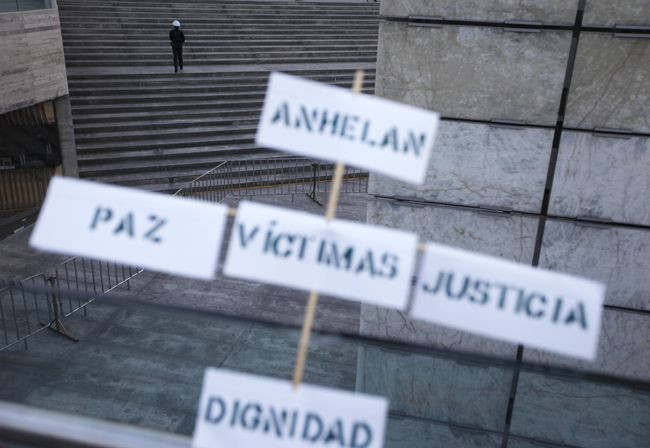
Many rightfully fear the notoriously brazen, violent drug cartels of Mexico. Bishop Raul Vera is not one of those people.
In a country overrun by crime inevitably related to the drug trade, Vera is one of scant few public figures who make it very clear they stand staunchly against the widespread issue of government corruption tied to the cartels.
Standing before his congregation in Saltillo, in the southern Mexican state of Chiapas, to inaugurate The Year of Faith, Vera asked, can Mexicans follow leaders "who are the ones who have let organized crime grow, who have let criminals do what they do unpunished, because there's no justice in this country," the Associated Press reported.
The area Vera resides over used to be a quaint town, but the state bordering Texas has become a hideout for the gruesome Zetas drug cartel in recent years.
He continued: "What we're seeing now is nothing other than the reaccommodation of the criminal groups with the new government teams. The criminal groups always have their agreements with those who are in the state governments, in the federal government."
To many in his rural Mexican state, Vera represents the rare spiritual leader who takes chances and is never afraid to make a stand on any issue he's passionate about, including complicated topics like gay rights.
"Among the defenders of human rights he is the one who hedges the least, he says things the way they are," said Emiliano Ruiz Parra, a Mexican journalist. "He's not afraid, for example, to take on the president, the one who's leaving or the president-elect."
Aside form lambasting government corruption, Vera also calls for further investigation into the thousands of migrants who go missing every year while passing through his state. He demanded authorities take drug cartels to task, and treat these disappearances more seriously, calling for police to create a DNA database to identify bodies.
Julia Castillo, a member of Vera's church, called Vera an inspiration to Mexican citizens during a time when many feel invisible and hopeless.
"He talks about all of the injustice there is right now, of all the danger there is, that we have to stick together to fight against the corruption, above all in the government and the police," Castillo said. "We like the way he is."
© 2025 Latin Times. All rights reserved. Do not reproduce without permission.




